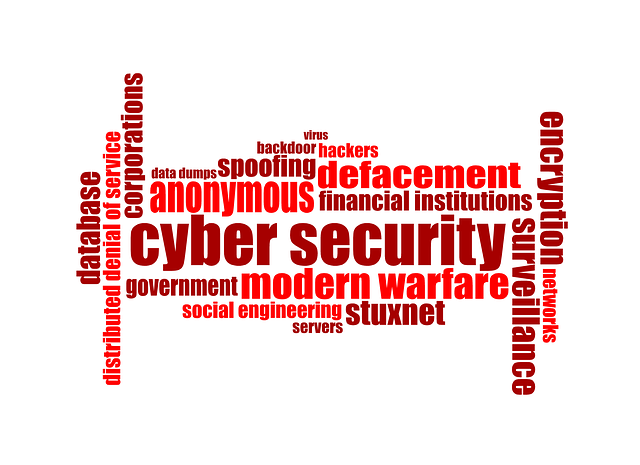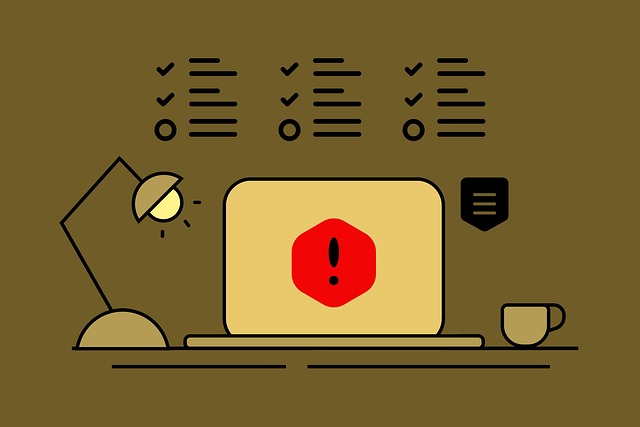Accounting firms, with their vast stores of sensitive financial data, are attractive targets for cybercriminals. To protect this valuable asset, they must implement tailored security strategies addressing cloud security risks and advanced threat detection. Key measures include robust access controls (MFA, RBAC), strong firewalls, encryption techniques, regular vulnerability management, and comprehensive backup/disaster recovery plans. Employee training on cybersecurity is vital to fostering a culture of vigilance against phishing attacks and data breaches. By integrating these strategies, accounting firms can maintain secure financial networks, protect client trust, and comply with regulations in today's digital era.
In today’s digital landscape, accounting firms face unique risks in securing their valuable digital assets. With sensitive financial data at risk from cyber threats, implementing robust IT security strategies is paramount. This article explores essential tools and tactics to safeguard your firm’s digital resources, including access controls, encryption, vulnerability management, backup solutions, and employee training. By understanding and mitigating these risks, you can ensure the integrity of your secure financial networks.
- Understanding the Unique Risks of Accounting Firms' Digital Assets
- Implementing Robust Access Controls and Authentication Mechanisms
- Encryption Techniques for Securing Data in Transit and at Rest
- Vulnerability Management and Regular Security Audits
- Backup and Disaster Recovery Strategies for Financial Data
- Employee Training and Awareness: The Human Element of Cybersecurity
Understanding the Unique Risks of Accounting Firms' Digital Assets

Accounting firms hold vast amounts of sensitive financial data, making them attractive targets for cybercriminals. The unique nature of this industry’s digital assets poses specific risks that require tailored security strategies. Unlike general businesses, accounting firms deal with highly regulated and confidential information, such as tax records and financial statements. This precious data is not only valuable to hackers but also subject to stringent privacy laws and industry regulations.
The cloud has become an integral part of many accounting practices, providing accessibility and remote work capabilities. However, this shift brings new challenges, including potential cloud security risks for CPAs. Advanced threat detection methods are essential in identifying and mitigating sophisticated cyberattacks. Compliance-level security measures, designed to meet the stringent requirements of financial regulations, can help firms maintain client trust and avoid legal repercussions.
Implementing Robust Access Controls and Authentication Mechanisms

Implementing robust access controls and authentication mechanisms is a cornerstone of securing financial networks within accounting firms. By establishing strong identity protection measures, firms can ensure that only authorized personnel have access to sensitive data, reducing the risk of unauthorized transactions and data breaches. This involves employing multi-factor authentication (MFA) methods, such as biometric verification or one-time passwords, in addition to role-based access control (RBAC), which limits access based on job functions and responsibilities.
A CPA firewall setup is a critical component of cloud security for CPAs, providing an extra layer of protection against cyber threats. This robust security solution filters network traffic, blocking malicious attempts while allowing legitimate data exchange. By integrating advanced authentication mechanisms with a well-configured firewall, accounting firms can safeguard their digital assets and maintain the integrity of financial networks, fostering a secure environment for clients and business operations.
Encryption Techniques for Securing Data in Transit and at Rest

In today’s digital landscape, securing financial networks is paramount for accounting firms to safeguard their sensitive client data. Encryption techniques play a dual role in this regard, ensuring both data security in transit and at rest. When data is in transit, such as during online transactions or email communications, encryption algorithms like AES (Advanced Encryption Standard) transform the information into an unreadable format, making it inaccessible to unauthorized users even if intercepted. At rest, encryption ensures that stored data remains secure within databases or files. This involves implementing robust key management practices and utilizing protocols like SSL/TLS for secure data storage and retrieval.
Additionally, advanced threat detection systems, integrated into a CPA firewall setup, are essential components of comprehensive data security plans for CPAs. These tools monitor network activities for suspicious patterns, enabling rapid response to potential cyberattacks. By combining robust encryption measures with cutting-edge threat detection, accounting firms can fortify their defenses against evolving cyber threats and maintain the integrity and confidentiality of their digital assets.
Vulnerability Management and Regular Security Audits

Accounting firms hold vast amounts of sensitive financial data, making them prime targets for cybercriminals. That’s why implementing robust vulnerability management strategies is essential to securing their digital assets and the secure financial networks they support. Regularly identifying and patching vulnerabilities in software and systems helps prevent attackers from exploiting known weaknesses, thereby minimizing the risk of data breaches and other security incidents.
Proactive security audits are another critical component of a comprehensive IT security strategy for accounting firms. These audits ensure that all systems and processes align with industry best practices and regulatory requirements like GDPR or CCPA. By conducting thorough assessments of their technology infrastructure, firms can identify areas where their security measures might be lacking and implement targeted improvements to bolster their compliance-level security posture, particularly in identity protection accounting and email protection for CPAs.
Backup and Disaster Recovery Strategies for Financial Data

Accounting firms hold vast amounts of sensitive financial data, making robust backup and disaster recovery strategies paramount for maintaining secure financial networks. A well-defined plan ensures that critical information is easily retrievable in the event of a cyberattack, human error, or natural disaster. This often involves implementing multiple backup solutions like cloud-based repositories and local storage devices to safeguard against data loss.
A CPA firewall setup and robust firm security protocols further bolster these efforts by filtering network traffic and preventing unauthorized access. Additionally, email protection for CPAs is essential as emails remain a common vector for malicious attacks such as phishing and ransomware. By integrating advanced email security solutions, accounting firms can mitigate these risks, ensuring the integrity and confidentiality of their digital assets at all times.
Employee Training and Awareness: The Human Element of Cybersecurity

In today’s digital landscape, employee training and awareness are paramount to maintaining secure financial networks. Accounting firms, in particular, must equip their staff with the knowledge to recognize and mitigate potential cybersecurity threats. Phishing attacks, for instance, have become increasingly sophisticated, making it crucial for CPAs (Certified Public Accountants) to understand how to identify suspicious emails or links that could compromise sensitive client data. Regular training sessions can cover best practices like verifying the authenticity of communications, using strong passwords, and enabling multi-factor authentication—essential steps in fortifying cloud security for CPAs.
Beyond compliance-level security, fostering a culture of cybersecurity awareness helps employees stay vigilant against emerging threats. By integrating these security measures into day-to-day operations, accounting firms can significantly reduce the risk of data breaches and ensure the integrity of their digital assets. This proactive approach not only protects client information but also safeguards the reputation of the firm in an increasingly connected business environment.
